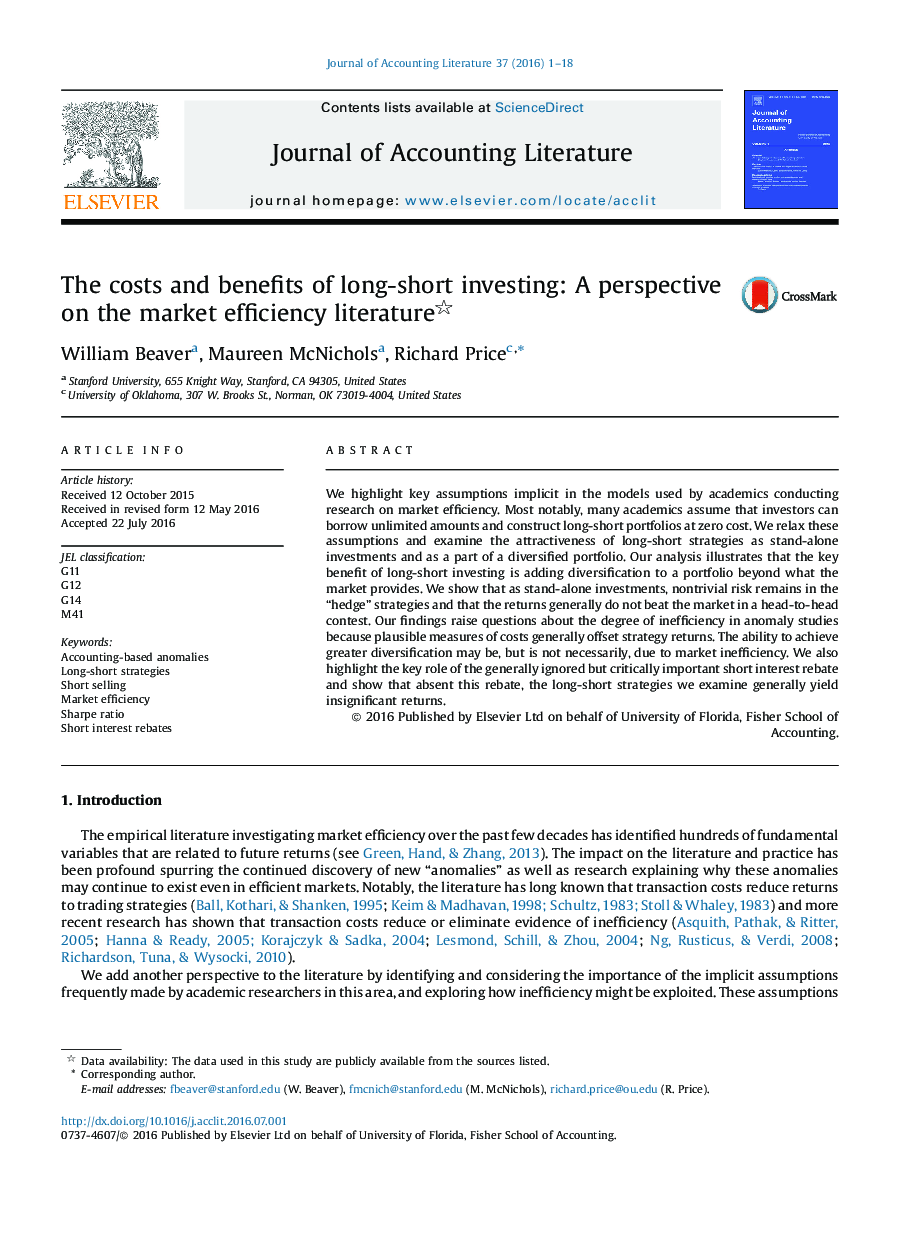| Article ID | Journal | Published Year | Pages | File Type |
|---|---|---|---|---|
| 1005683 | Journal of Accounting Literature | 2016 | 18 Pages |
We highlight key assumptions implicit in the models used by academics conducting research on market efficiency. Most notably, many academics assume that investors can borrow unlimited amounts and construct long-short portfolios at zero cost. We relax these assumptions and examine the attractiveness of long-short strategies as stand-alone investments and as a part of a diversified portfolio. Our analysis illustrates that the key benefit of long-short investing is adding diversification to a portfolio beyond what the market provides. We show that as stand-alone investments, nontrivial risk remains in the “hedge” strategies and that the returns generally do not beat the market in a head-to-head contest. Our findings raise questions about the degree of inefficiency in anomaly studies because plausible measures of costs generally offset strategy returns. The ability to achieve greater diversification may be, but is not necessarily, due to market inefficiency. We also highlight the key role of the generally ignored but critically important short interest rebate and show that absent this rebate, the long-short strategies we examine generally yield insignificant returns.
